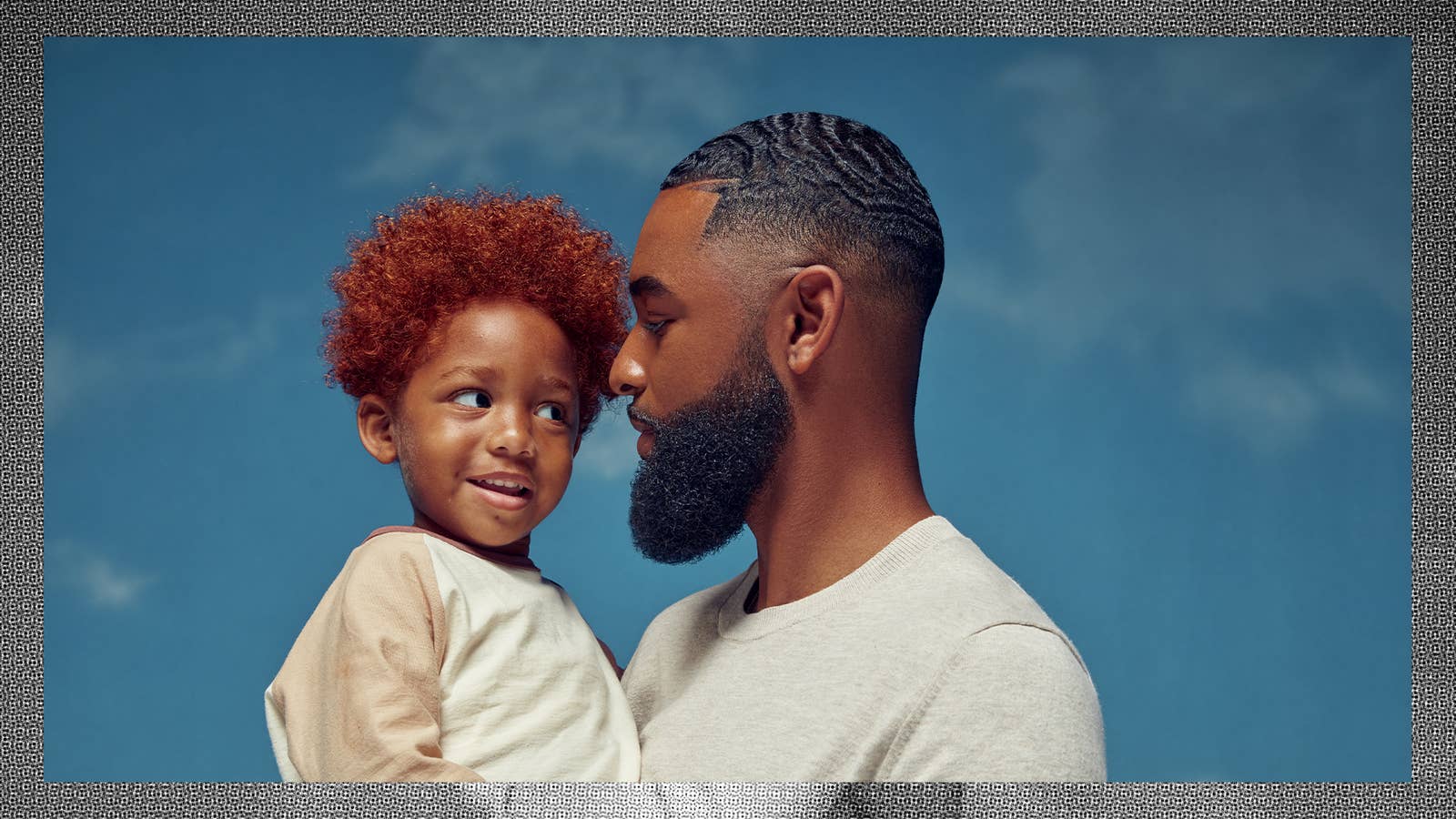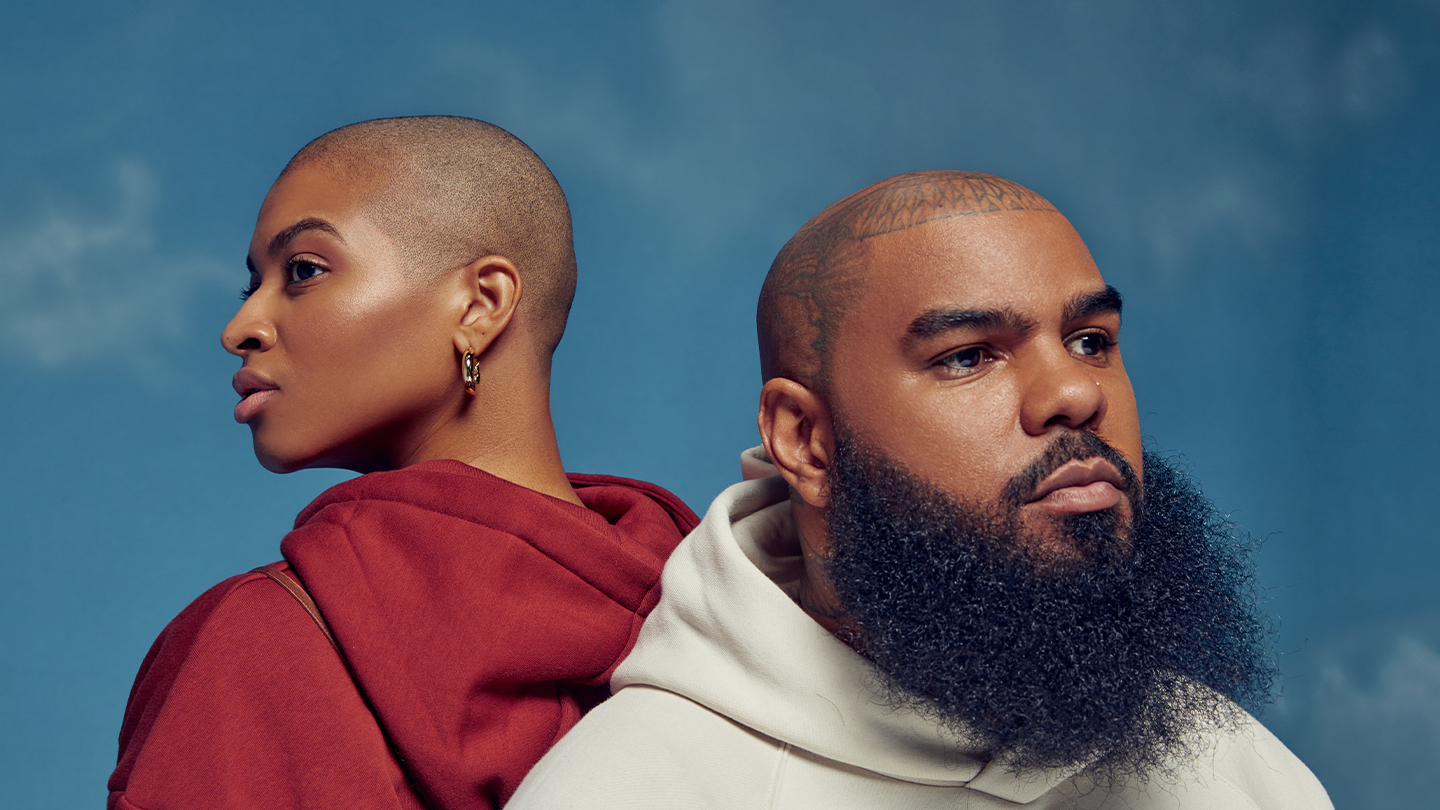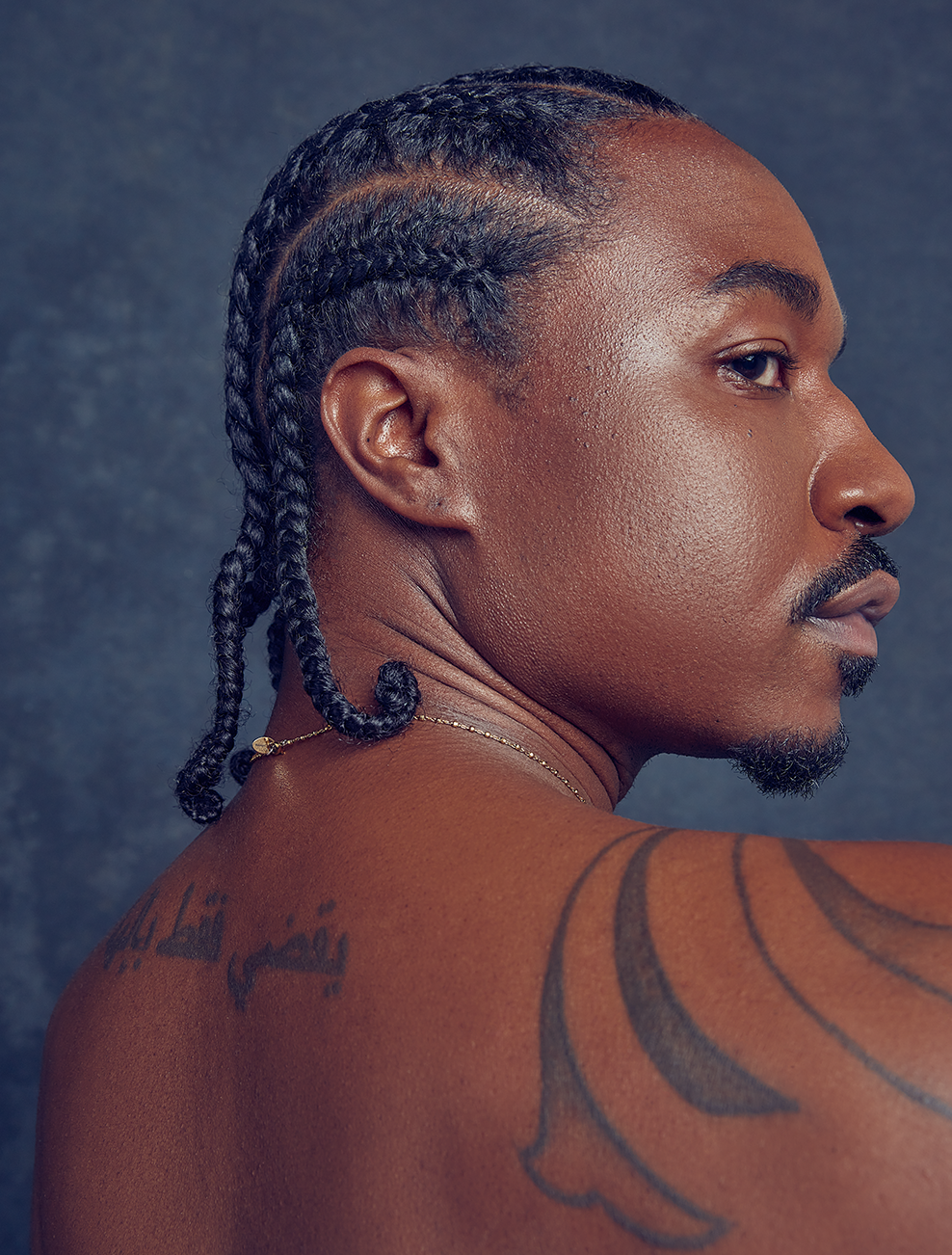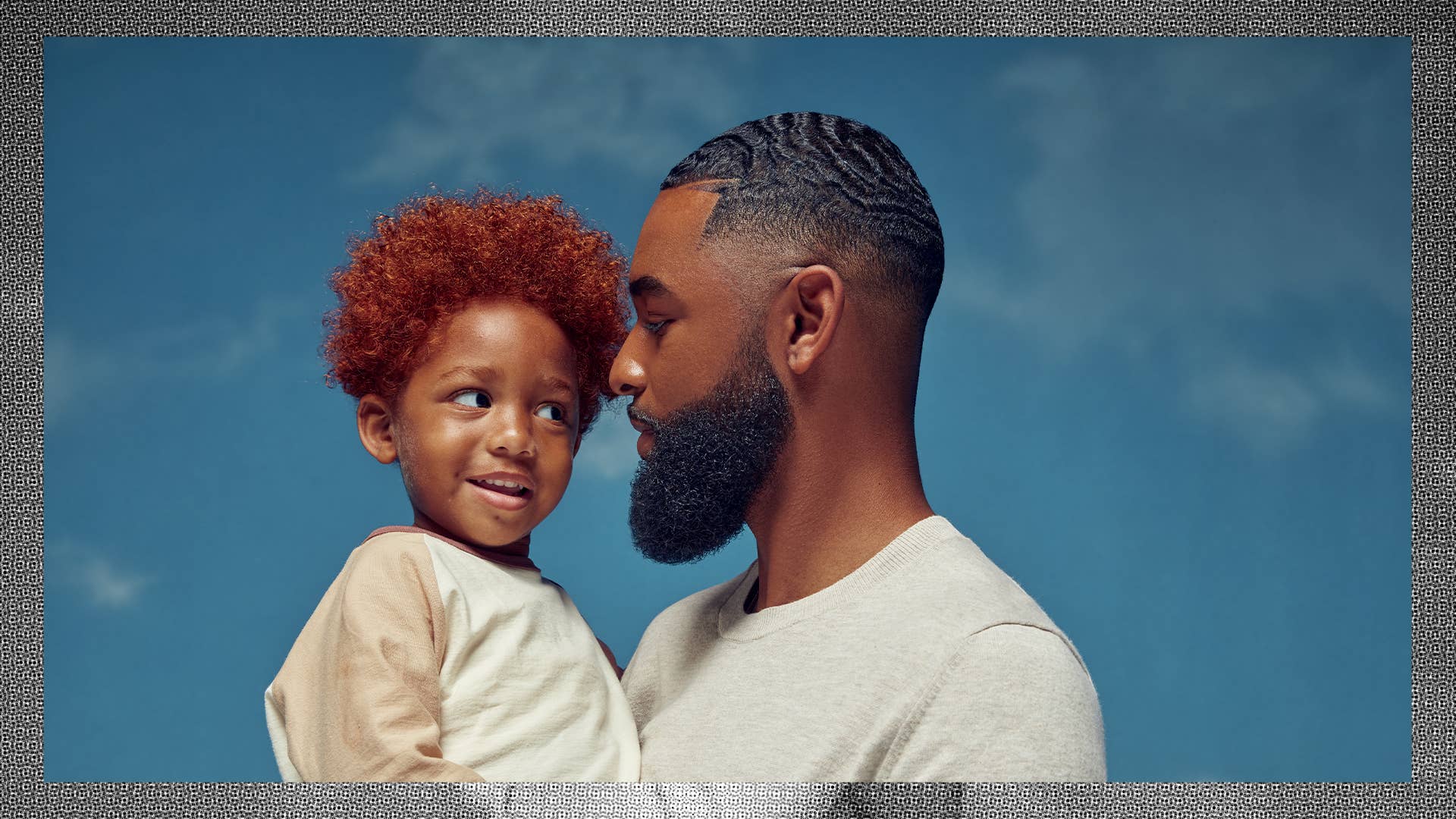
Being Black is truly a soulful, eye-opening, and enriching experience. But behind all the #BlackExcellence, #BlackGirlMagic, #BlackBoyJoy tags, TikToks, and beautifully shot images, there are often struggles that most don’t see because they’re blurred by social media filters.
The last several years have been stressful for all of us. From pandemics to unexpected unemployment to rising tensions to police brutality, and, most recently, rising inflation, nothing has been easy. While this stress impacts us all, regardless of race, gender, or ethnicity, Black Americans are often statistically impacted more than other groups, due to structural inequalities that have persisted over generations. Simply put, being Black in America is stressful. Constantly being perceived as a threat, stereotyped, and oversexualized from an early age can take a toll on the mind, body, and spirit. When they were younger, many Black men were taught to “man up,” learning to never show emotion or talk about their feelings. And with society’s long-held stereotypes about masculinity, the concepts of self-care, mental health and wellness are often viewed as “unmanly” or worse yet, unnecessary. It’s a one-two combination that quietly beats us up from the inside out, issues you can learn more about in Bevel’s “Get Your Mind Right” campaign clip below.
Thankfully, the stigma surrounding open and honest conversations about mental health have begun to fade in recent years. Tasnim Sulaiman, a licensed psychotherapist and founder and CEO of Black Men Heal, a non-profit organization dedicated to providing men of color with mental health treatment and resources, and Tristan Walker, founder and CEO of Bevel, a head-to-toe grooming brand specifically for Black men, have a shared vision of supporting Black men through their mental health journeys. Both Sulaiman and Walker are committed to providing Black and Brown men with the tools they need to treat themselves from the inside out.
Recently, Sulaiman and Walker came together to discuss Black men and the best ways for them to maintain their mental health. Read on below to see their thoughts on why so many men of color avoid talking about their emotional struggles, what we as a community can do to change that for future generations, and why it’s important to create a safe space for men to ask for help.
What Black Men Heal Offers
Tasnim: We’ve tailored our mental health resources across both in-person and virtual [platforms] to help us meet men where they are. We have an Individual Therapy Program, [which includes] eight free therapy sessions. [There], we match men up with clinicians of color that can relate to the unique presenting issues and cultural needs of each individual. Our proprietary matching system ensures each man is matched up with the therapist they are most likely to have a productive relationship with, which, most-often, leads to successful therapeutic outcomes.
We also offer a free weekly virtual group session for men called Kings Corner. The Kings Corner group provides a safe space for men to fellowship, create, and hold space for one another while developing tangible mental wellness tools. Each virtual session features a different guest host [who covers] a variety of mental health-related topics. [Lastly], we also do an in-person version of Kings Corner that travels from city-to-city.
What Signs Men Should Be Aware of Regarding Their Mental Health
Tasnim: There are many signs to keep an eye out for. Some of the common signs are or can be: feeling chronic states of stress, sadness, guilt; helplessness or emptiness; constant worry or overthinking (especially worrying about things you have no control over); fatigue; difficulty sleeping; loss of interest or joy in family/relationships, work, hobbies, etc…; [and] difficulty concentrating or completing tasks. [Other signs are] an increase in agitation or angry outbursts; becoming more controlling or abusive in relationships; and numbing behaviors such as alcohol, drugs, gambling or irresponsible sexual behaviors.
Men should also pay attention to a “work obsessively” mode. Because working and providing for family and self are such highly defining traits of masculinity, often men can miss that obsessive work with no breaks or time for rest or self care can be avoidance/overcompensating for not wanting to face what comes up if you are still. Black men often carry a lot of intergenerational trauma and can be constantly triggered and retraumatized regularly within their daily existence.
Why It’s Challenging for Some Black Men to Open Up About Mental Health Struggles
Tasnim: Life is hard, and it’s challenging to be vulnerable in the face of uncomfortable things. Everyone is going through something, especially the last few years. Conversations about mental health force people to look in the mirror and really see themselves. Historically, mental health has been synonymous with “weakness.” For a Black man, the world can often not feel like a safe place to be vulnerable. We founded Black Men Heal to create more of those safe spaces for Black men.
Tristan: As a founder and entrepreneur, I’ve spent my adult life becoming very familiar with the idea of “investing” (in other start-ups, brands, etc). For me, mental health is just a personal investment into myself and in support of my family [and] loved ones. My community needs me to show up in the world in a way that is authentic, transparent, and empathetic. I can’t do that if my own mental health is clouded. When I think about mental health as a personal investment into myself, as a form of self-care, all of sudden these conversations aren’t hard or impossible, they’re absolutely vital.

Experiences That Can Trigger Mental Health Stressors
Tasnim: Trauma is the key. We are constantly retraumatized and having our deepest wounds triggered by what we experience or see in the media. Other triggers might include developmental stages, rites of passages, or major life transitions. For example, moving [away] from home for the first time; getting married; having a child; a break-up; the death of a loved one; getting sick or having an accident; are all examples of experiences that can trigger mental health stressors.
Tristan: The last two years have been both traumatic and stressful for everyone. You pair a pandemic with the on-going challenges of being Black in 2022 and that equals a lot of stress on your mental health. Everyone is engaged in some type of shared suffering and it’s important for us to realize we are all in this together.
How Can Black Men Regulate Their Mental Health to Achieve Black Boy Joy
Tasnim: Therapy is just one tool to help with healing and overall wellness. It’s also important to think about holistic healing, head to toe, inside [and] out. This means paying attention to the eight dimensions of your wellness: physical, spiritual, social, intellectual, emotional/mental, occupational, environmental, and financial.
Tristan: Accept that it’s okay to be a little selfish about your own joy and mental health. Understand that no one has more control over your joy than you do. You have to consistently invest in yourself.
How Black Men Should Address Mental Health With Their Sons
Tasnim: It starts with the example that the father or parent gives—not only what you say, but what you do. Your children will ultimately imitate how you care for your physical, spiritual, and emotional health. Your son should know that it’s ok to not be ok.
Tristan: I think all good parenting leads with embracing empathy, and by letting your children see you being comfortable working on or dealing with your own mental health. If my sons, as they’re growing, mimic what I say and do, why wouldn’t I give them the best example possible of addressing my own mental health?
How to Access Mental Health Care or Services Without Insurance
Tasnim: Black Men Heal is definitely an option for men [without insurance] because all of our services are free. There are other amazing groups that offer free or low cost resources for people such as Alkeme Health, The Loveland Foundation, The Boris L Henson Foundation, and Open Path Collective. There are so many amazing podcasts (Let’s Talk Bruh, etc.) and social pages (@ExpressYourselfBlackman) that provide free content aimed at helping improve your mental health. Something that works well for me personally, is to set up my social media profiles to only follow accounts that provide what I wish to feel, think, or be.
Why It’s Important to Understand Your Mental Health
Tasnim: Understanding your mental health is your personal blueprint to knowing your triggers, how your thoughts work, [how you] make certain choices, and why you react to certain things but not others.
Once you learn how to master your own personal mental health, you free yourself. You can control negative or irrational thoughts of doubt or fear; you know what to prepare for and how to manage your triggers; and most importantly you learn how to respond instead of react while making better decisions.
Tristan: Life is about growth and it’s challenging to grow into your best self without understanding the impact of your life’s experiences on your own mental health. We can’t do it all on our own, and it’s, at times, difficult to ask for the help we might need.

Why It’s Important to Ask for Help
Tasnim: Often, when we’re physically hurt or injured, we go to see a doctor or [something] similar. Mental health is no different, and asking for help opens the door to healing.
Tristan: It reminds me of something often credited to the great James Baldwin: “Not everything that is faced can be changed, but nothing can be changed until it is faced.” Without ever talking about mental health or asking for help, it is almost impossible to address any needs you might have. We are more powerful together than we are alone.
Go to Bevel and Black Men Heal for more information on how to maintain your mental health and engage in healthy self-care habits.

